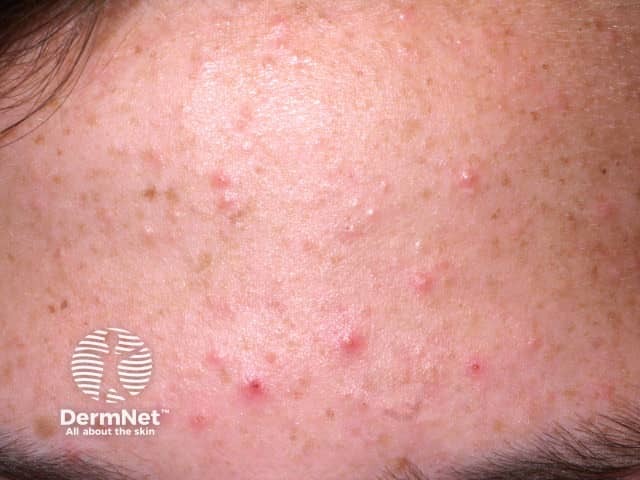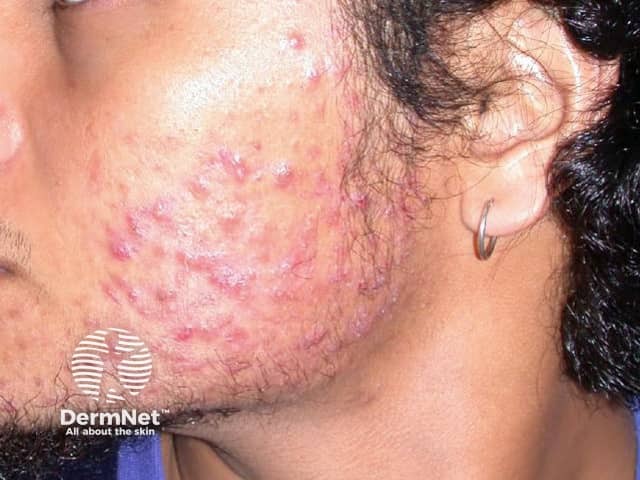Main menu
Common skin conditions

NEWS
Join DermNet PRO
Read more
Quick links
Last Reviewed: May, 2024
Adapted by Dr Libby Whittaker, DermNet Medical Writer (2024) from original content written by Dr Amanda Oakley, Dermatologist (2014).
Reviewing dermatologist: Dr Ian Coulson (2024)
Edited by the DermNet content department
The best approach to getting rid of acne depends on the kind of acne you have and how bad (severe) it is. Most treatments take at least 4–6 weeks to start making a noticeable difference.
Non-medication strategies and lifestyle habits can also help keep your skin more calm and healthy alongside treatment.
Keep reading to learn more. Note: many treatments for acne need to be discussed with and prescribed by a doctor to check they are safe to use.

Mild acne on the forehead

Moderate acne on the cheeks

Severe back acne
Topical treatments are applied directly to the skin eg, creams, lotions, gels, or cleansers. They may be all that is needed to treat mild acne, or used in combination with other treatments (like antibiotic tablets) for moderate or severe acne.
Examples of topical treatments for acne include products containing:
Many anti-acne skincare products containing benzoyl peroxide, azelaic acid, or salicylic acid are available to buy at a pharmacy without a prescription.
Tretinoin or adapalene products (which are types of topical retinoids, related to Vitamin A), on the other hand, generally need to be prescribed for you by a doctor.
Systemic treatments include tablets and capsules taken by mouth. If your acne is widespread, scarring, or not clearing up with topical treatments, your doctor may suggest trying one of the following medications (which are usually taken daily for at least 3–6 months):
Hormonal medications such as the combined oral contraceptive pill (COCP), which is a type of birth control pill, can also be very helpful in controlling acne in women. They work by lowering testosterone, which is a hormone that (among other things) increases the amount of oil your skin makes.
Antibiotics, isotretinoin, and hormonal medications all need a prescription from a doctor or other qualified healthcare professional (eg, nurse practitioner), to ensure they are safe to use and for discussion of possible side effects.
Other treatments such as laser light therapy are also sometimes used to get rid of acne.
If your acne is severe, a referral to see a skin specialist (dermatologist) is recommended.
For more information about acne, see: